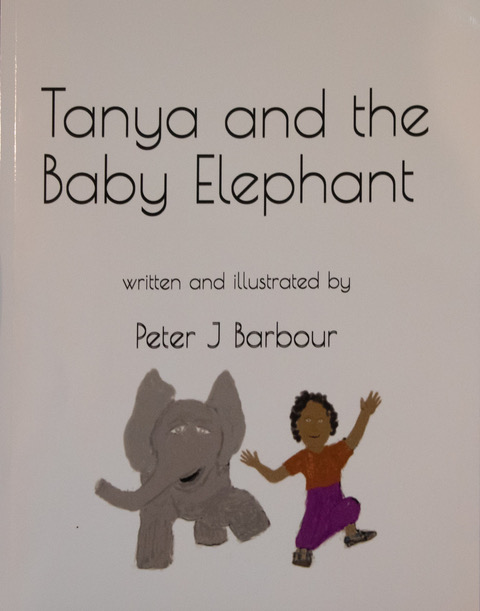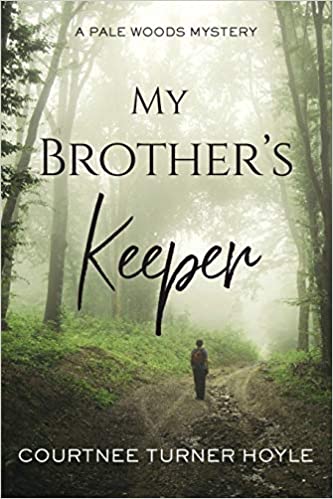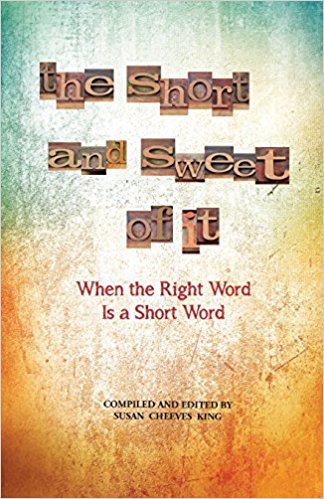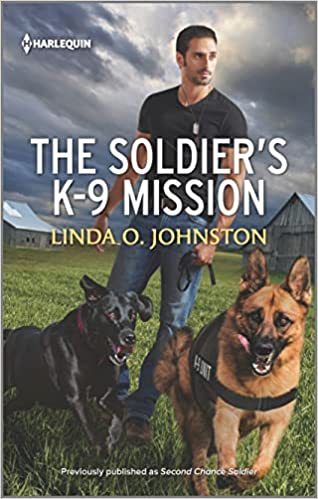Does the Extra Squeeze Team Think an Author Can Be Published both Traditionally and Indie?
October 31, 2017 by The Extra Squeeze in category The Extra Squeeze by The Extra Squeeze Team tagged as Hybrid Publishing, indie publishing, traditional publishing, Writing Advice
Does the Extra Squeeze Team Think an Author Can Be Published both Traditionally and Indie?
I’m a traditionally published author and I have several ideas that I would like to publish independently. Will my publisher be upset? Can an author really be published both traditionally and independently?
[tweetshare tweet=”Can an author really be published both traditionally and independently?” username=”A_SliceofOrange”]

Rebecca Forster
USA Today Bestselling author of 35 books, including the Witness series and the new Finn O’Brien series.
Like so many other authors, I walked a fine line for years as I tried to create a viable writing career while not upsetting the publishing apple cart. I knew there were fifty worthy authors out there waiting to take my place on the list if I made waves with my agent or publisher. The majority of writers in the last many years were playing real-life Chutes and Ladders and more than likely we were all going to end up at the bottom of a chute.
I made a decision not to continue pursing a traditional career when I submitted a book that I believed would take my work to a new level. It was rejected by any number of publishers. They didn’t want to take a chance, and I couldn’t blame them. If they published a book that was not what my reader’s had come to expect, they might not make back the investment they had made in me. Coming from a business background, I understood that editing, cover design, distribution, sales, and returns could all be translated to a line item on the publisher’s balance sheet.
Realizing that distribution channels were tightening up, wanting to explore how far I could take my craft, I published that book on my own. Happily, I found the editors were wrong. Readers bought it, liked it and understood it. I went on to republish and expand a series that the publisher believed had run its course. The first book has had over 4 million downloads, and the series has over seven thousand reviews.
Today, the chutes remain the same but there is more than one ladder to climb, and an author’s fate is in her (or his) hands.
So here are my answers to your questions, and a little advice. First my answers.
Yes, it is possible to publish both traditionally and independently. I’ve met many authors who have had great success as hybrids.
Your editor will be upset only if you don’t pursue hybrid publishing in a professional manner. If the editor has turned down your ideas, then you are free to pursue other avenues. If you are contractually bound to first right of refusal with your publisher, then show them your new ideas and make your decision after you hear what the editor has to say.
[tweetshare tweet=”Traditional or Indie: Advice from @Rebecca_Forster” username=”A_SliceofOrange”]
And now for the advice:
Treat both your traditional and independent publishing with the same professionalism. Your readers won’t change; they will still expect good writing, an excellent story, and a well-produced book.
When marketing, use your traditional success to bolster your independent publishing, use your independent success to bolster your traditional work. This is a win/win for the hybrid author.
So go for it. Execute those ideas that may not be in the mainstream. Be bold; be brave. Publishing is exciting, scary, full of choices and marvelous no matter which road you take.

Jenny Jensen
Developmental editor who has worked for twenty plus years with new and established authors of both fiction and non-fiction, traditional and indie.
Not being an expert on the publishing industry I’m certain I don’t have an expert response, but I do know there are a lot of hybrid authors. A quick Google search reveals a ton of articles on the pros and cons of hybrid publishing — mostly pros. Traditionally published writers who go indie, and vice versa, often find having a stake in both worlds to be a lucrative model. If there isn’t an existing contract with a publisher, what’s there to be mad about? Indie is a fabulous opportunity.
[tweetshare tweet=”Editor Jenny Jensen Traditional vs Indie: The Indie option makes the issue of quality even more critical.” username=”A_SliceofOrange”]
What I am certain of is the Indie option makes the issue of quality even more critical than in pre-digital days. All work that leaves your hands, all work with your name on it must be the best it can be. For a traditional publisher you have to offer the best work you possibly can if you want to even be considered for publication. But traditional publishers have the back up of a slew of editors who expect to work with a compelling manuscript to make it the best they feel it can be. Your work simply has to be so good it merits a publisher’s investment. That bar is set pretty high. A good freelance editor will improve your odds of clearing it.
An Indie writer has only the back up she invests in her work. If you release a poorly edited book, regardless of how exciting the premise is, or how charming your characters or how riveting your action, you lose readers and the credibility of your name — you lose your opportunity. An Indie author must themself invest all the necessary effort and services offered by a publishing house. The return on that investment is success, creative control and much juicier royalties.
I edit each of my clients as if their work were going to the Nobel committee. The goal is to make a perfectly crafted story that can measure up to both a Random House editor and all those discerning readers downloading to their devices. That should be every writer’s goal — traditional or Indie. The services of an editor are a part of achieving that.

Ever wonder what industry professionals think about the issues that can really impact our careers? Each month The Extra Squeeze features a fresh topic related to books and publishing.
Amazon mover and shaker Rebecca Forster and her handpicked team of book professionals offer frank responses from the POV of each of their specialties — Writing, Editing, PR/Biz Development, and Cover Design.
Robin Blakely
PR/Business Development coach for writers and artists; CEO, Creative Center of America; member, Forbes Coaches Council.
Frankly, who cares if your publisher is upset?
Of course, as a PR professional, I love to make sure there is harmony amongst the people, that protocol is maintained, and that diplomacy is the hallmark of all relationships.
But here is the reality: it is tough being a professional writer. You have a right to make a living as a writer in a world that often does not value your talent appropriately.
[tweetshare tweet=”@RobinBlakely says: Please think of your writing career as a business.” username=”A_SliceofOrange”]
If your publisher wants to throttle your ability to earn an income, I would be very concerned about working with that publisher. Anytime there is oppression, fear, or a sense that you must go out of your way to manage your publisher’s emotional state, walk away. Being told how and when and what to do—and not do–with your career is suffocating. You can do better. It is possible to publish traditionally and independently simultaneously and create a promotional strategy that allows both profit streams to flourish.
Please think of your career as a business. You are the brand. The publisher is a business partner. If you are kept in the dark or restricted from succeeding, what kind of partnership does that make? Not one that is good enough for you.
If only I were published traditionally, I would have a better answer to this!
I do know of another fantasy author who has done both. He started off as self-published and then signed over some of his books to a big-name house. In that situation, both parties were winners. He gained more publicity, and they knew they were supporting a writer who was already popular (and could therefore make money from him).
If it’s the other way around, I’m not so sure. They may be spending ££££ on your PR, so might not appreciate it if (as a ludicrous example) they had built and sold an image of you as a sweet, softy romance author, and then you went and published a treatise on the pros of Nazism. I guess that’s the question to ask: “Will my publishing independently cause a loss on their investment in me?”
[tweetshare tweet=”H.O. Charles: Will your publishing independently cause a loss on your publishers investment?” ” username=”A_SliceofOrange”]
Affiliate Links
A Slice of Orange is an affiliate with some of the booksellers listed on this website, including Barnes & Nobel, Books A Million, iBooks, Kobo, and Smashwords. This means A Slice of Orange may earn a small advertising fee from sales made through the links used on this website. There are reminders of these affiliate links on the pages for individual books.
Search A Slice of Orange
Find a Column
Archives
Featured Books
TANYA AND THE BABY ELEPHANT
Tanya is stuck at home. Can a baby elephant make her less lonely?
More info →THE SHORT & SWEET OF IT: When the Right Word Is a Short Word
How do we say more with less? Can short, simple words make what we write so clear that the reader gets it? Or will it remind them of reading a child’s board book?
More info →LILIANA’S LETTER
Hired to help an heiress snare a titled husband, a down-on-her-luck lady dodges her own shadowy past and the titled Lord determined to uncover it.
More info →Newsletter
Contributing Authors
Search A Slice of Orange
Find a Column
Archives
Authors in the Bookstore
- A. E. Decker
- A. J. Scudiere
- A.J. Sidransky
- A.M. Roark
- Abby Collette
- Alanna Lucus
- Albert Marrin
- Alice Duncan
- Alina K. Field
- Alison Green Myers
- Andi Lawrencovna
- Andrew C Raiford
- Angela Pryce
- Aviva Vaughn
- Barbara Ankrum
- Bethlehem Writers Group, LLC
- Carol L. Wright
- Celeste Barclay
- Christina Alexandra
- Christopher D. Ochs
- Claire Davon
- Claire Naden
- Courtnee Turner Hoyle
- Courtney Annicchiarico
- D. Lieber
- Daniel V. Meier Jr.
- Debra Dixon
- Debra H. Goldstein
- Debra Holland
- Dee Ann Palmer
- Denise M. Colby
- Diane Benefiel
- Diane Sismour
- Dianna Sinovic
- DT Krippene
- E.B. Dawson
- Emilie Dallaire
- Emily Brightwell
- Emily PW Murphy
- Fae Rowen
- Faith L. Justice
- Frances Amati
- Geralyn Corcillo
- Glynnis Campbell
- Greg Jolley
- H. O. Charles
- Jaclyn Roché
- Jacqueline Diamond
- Janet Lynn and Will Zeilinger
- Jaya Mehta
- Jeannine Atkins
- Jeff Baird
- Jenna Barwin
- Jenne Kern
- Jennifer D. Bokal
- Jennifer Lyon
- Jerome W. McFadden
- Jill Piscitello
- Jina Bacarr
- Jo A. Hiestand
- Jodi Bogert
- Jolina Petersheim
- Jonathan Maberry
- Joy Allyson
- Judy Duarte
- Justin Murphy
- Justine Davis
- Kat Martin
- Kidd Wadsworth
- Kitty Bucholtz
- Kristy Tate
- Larry Deibert
- Larry Hamilton
- Laura Drake
- Laurie Stevens
- Leslie Knowles
- Li-Ying Lundquist
- Linda Carroll-Bradd
- Linda Lappin
- Linda McLaughlin
- Linda O. Johnston
- Lisa Preston
- Lolo Paige
- Loran Holt
- Lynette M. Burrows
- Lyssa Kay Adams
- Madeline Ash
- Margarita Engle
- Marguerite Quantaine
- Marianne H. Donley
- Mary Castillo
- Maureen Klovers
- Megan Haskell
- Melanie Waterbury
- Melisa Rivero
- Melissa Chambers
- Melodie Winawer
- Meriam Wilhelm
- Mikel J. Wilson
- Mindy Neff
- Monica McCabe
- Nancy Brashear
- Neetu Malik
- Nikki Prince
- Once Upon Anthologies
- Paula Gail Benson
- Penny Reid
- Peter J Barbour
- Priscilla Oliveras
- R. H. Kohno
- Rachel Hailey
- Ralph Hieb
- Ramcy Diek
- Ransom Stephens
- Rebecca Forster
- Renae Wrich
- Roxy Matthews
- Ryder Hunte Clancy
- Sally Paradysz
- Sheila Colón-Bagley
- Simone de Muñoz
- Sophie Barnes
- Susan Kaye Quinn
- Susan Lynn Meyer
- Susan Squires
- T. D. Fox
- Tara C. Allred
- Tara Lain
- Tari Lynn Jewett
- Terri Osburn
- Tracy Reed
- Vera Jane Cook
- Vicki Crum
- Writing Something Romantic
Affiliate Links
A Slice of Orange is an affiliate with some of the booksellers listed on this website, including Barnes & Nobel, Books A Million, iBooks, Kobo, and Smashwords. This means A Slice of Orange may earn a small advertising fee from sales made through the links used on this website. There are reminders of these affiliate links on the pages for individual books.







































